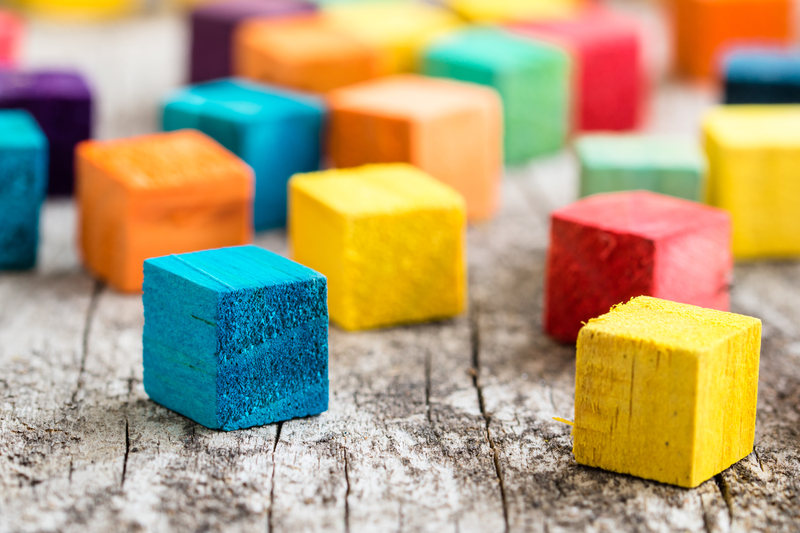Why Proper Cookware Disposal Protects Our Planet
Proper cookware disposal is often overlooked in sustainable living conversations. Yet, the careful handling of old pots, pans, and kitchen gadgets plays a crucial role in safeguarding our environment. This article delves deep into the reasons why environmentally friendly cookware recycling and disposal matter, how it can be achieved, and its long-term impact on the health of our planet.

The Environmental Impact of Improper Cookware Disposal
Every year, millions of tons of kitchenware -- from aluminum pans to non-stick skillets -- are thrown away. Most of this cookware ends up in landfills where it can take centuries to break down, leaching chemicals and metals into soil and water. Improper cookware disposal not only adds to landfills but also significantly contributes to resource wastage and environmental pollution.
The Problem with Landfills and Household Waste
- Longevity of Cookware Materials: Metals such as aluminum, stainless steel, and copper take hundreds of years to decompose. Non-stick surfaces contain chemicals that persist even longer.
- Chemical Leaching: Non-stick pans often contain Perfluorooctanoic acid (PFOA) and polytetrafluoroethylene (PTFE), which may leach into our environment.
- Resource Depletion: When we discard rather than recycle, we waste metals and alloys that could be reused in new products.
Recycling Saves Resources and Reduces Pollution
When you choose to recycle old cookware, you actively help reduce the need for mining new metals. Recycling conserves natural resources, cuts down on pollution, and helps slow the depletion of Earth's precious raw materials. Proper cookware recycling is a straightforward yet powerful action to combat climate change!
Types of Cookware and Their Environmental Impact
Understanding what your cookware is made of is essential for environmentally responsible disposal. Each material requires specific handling due to how it interacts with the environment and existing recycling processes.
Common Cookware Materials
- Stainless Steel: Highly recyclable if clean and free from plastic.
- Aluminum: Very energy-efficient to recycle but must be separated from non-metal parts.
- Cast Iron: Incredibly durable and can often be restored rather than discarded.
- Copper: Valuable as scrap metal, easy to recycle if not coated with other materials.
- Non-stick Coated (Teflon/ceramic): More challenging to recycle due to chemical coatings.
- Glass and Ceramic: Rarely accepted in curbside recycling; special facilities are required.
Potential Hazards of Improper Disposal
Non-stick coatings, chipped enamel, and coated surfaces release hazardous substances into soils and water systems if simply discarded in the trash. By ensuring cookware is disposed of responsibly, we minimize the release of toxins and heavy metals into our environment.
How to Dispose of Cookware Responsibly
Wondering what to do with ruined frying pans, cracked pots, or non-stick skillets past their prime? Here are smart, sustainable methods for cookware disposal that keep our planet in mind.
Reuse and Repurposing: The First Step
- Donate: If your cookware is still usable, consider giving it to local shelters, community kitchens, or thrift stores.
- Repurpose: Transform an old pot into a planter or use pans as craft supplies.
Recycle Metal Cookware Correctly
- Scrap Yards: Most metal cookware is accepted by local scrap metal yards. Remove plastic handles and lids before recycling.
- Municipal Recycling: Some communities offer bulk waste or metal collection drop-offs.
- Manufacturer Take-Back: Certain brands and retailers have return or trade-in programs for worn cookware.
Cookware with Non-Stick or Enamel Coatings
These items are generally not recyclable in household programs due to chemical residues. Contact your local waste management authority for hazardous material drop-off events or look for specialized recycling centers.
Recycling Glass, Ceramic, and Specialty Cookware
- Glass Cookware: Needs special processing due to its different melting point compared to regular glass recycling.
- Ceramic Cookware: Rarely accepted in curbside programs -- check for upcycling options or specialty recycling locations.
- Specialty Materials: Silicone bakeware and composite pans may be accepted by select facilities only.
The Sustainable Life Cycle of Cookware
Every piece of cookware has a life cycle: production, use, and end-of-life. How we manage the end of its usable years influences more than just our household waste stream.
Reducing Your Environmental Footprint
- Buy Durable: Invest in high-quality cookware that lasts for decades, reducing the need for frequent replacements.
- Repair: Many items like cast iron can be restored with simple techniques.
- Share: Participate in community swapping or lending events to circulate usable items.
The Role of Consumers in Cookware Disposal
It's up to each consumer to make mindful disposal decisions. By choosing to recycle cookware responsibly, you promote a circular economy, reduce emissions generated by new manufacturing, and protect Gaia's precious resources.
Impact on Wildlife and Human Health
Discarded cookware doesn't just clutter landfills. Improper disposal threatens wildlife and human health in surprising ways.
Chemical Contaminants in Ecosystems
- PFOA and other non-stick chemicals can contaminate rivers and groundwater, posing risks up the food chain.
- Heavy metals from cookware can be absorbed by plants and animals, threatening biodiversity.
Reducing Greenhouse Gas Emissions
Recycling metals uses far less energy compared to mining and refining raw ore. This means less air pollution and a measurable decrease in greenhouse gas emissions.
The Benefits of Proper Cookware Disposal for the Future
Properly disposing of your cookware isn't just about keeping your kitchen tidy -- it shapes the future of our world. Here are some of the long-term benefits of responsible cookware recycling and disposal:
- Conservation of Natural Resources: Reusing metals and materials reduces the need for virgin resource extraction.
- Circular Economy Growth: Recycling and reusing fosters new industries and jobs in the green sector.
- Reduction in Landfill Volume: Less trash means longer landfil lifespan and less land used for waste storage.
- Cleaner Water and Soil: Fewer hazardous chemicals escape into the environment.
- Reduced Carbon Footprint: Manufacturing with recycled metals limits greenhouse emissions.
- Community Wellbeing: A healthier environment benefits everyone, from city dwellers to rural ecosystems.
How to Find Local Cookware Disposal Programs
Not sure how to get started with environmentally friendly cookware disposal? Here's how you can find the best options in your area:
- Contact Municipal Waste Services: Most local governments provide information on drop-off locations or curbside pickup for metals and hazardous materials.
- Check with Retailers: Some kitchenware brands and big box stores offer take-back or recycling programs.
- Use Online Tools: Websites like Earth911 can search for cookware recycling centers by zip code.
- Community Groups: Local Facebook groups, Buy Nothing projects, or Freecycle networks are great for passing along usable cookware.
Common Questions About Cookware Recycling
-
Is Teflon cookware recyclable?
Most curbside programs do not accept Teflon or other non-stick pans due to chemical coatings. Look for specialty recycling or upcycling programs. -
Can glass baking dishes be recycled?
Not in standard glass recycling due to different melting points; check for specialty recycling centers. -
How do I dispose of rusty or damaged cast iron?
Scrap metal yards accept even heavily rusted iron, or restore for reuse.

Conclusion: Protecting Our Planet One Pan At a Time
Proper cookware disposal is not a trivial matter -- it's a vital step in protecting our planet. From reducing landfill waste and minimizing resource depletion to safeguarding wildlife and human health, every conscious choice you make regarding kitchenware matters. Embrace the simple yet powerful act of cookware recycling, and inspire your community to do the same.
Make sure your next cookware upgrade ends with a responsible goodbye for your old favorites. Your small action today can create a healthier, cleaner planet for generations to come.
Take Action: Your Role in Green Cookware Disposal
- Assess what cookware needs to be discarded or might be repurposed.
- Research local recycling and donation options before putting cookware in the trash.
- Educate family, friends, and your community about the importance of proper cookware disposal.
- Advocate for improved recycling programs and responsible manufacturing in your area.
- Lead by Example -- because sustainable living begins right at home.
Remember: Responsible cookware disposal isn't just about cleaning out your kitchen -- it's about sustaining a planet, one pan at a time.
